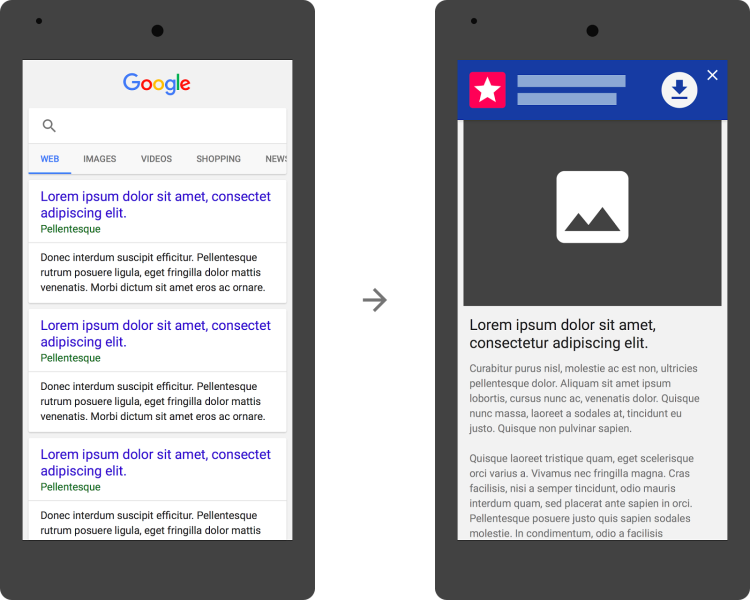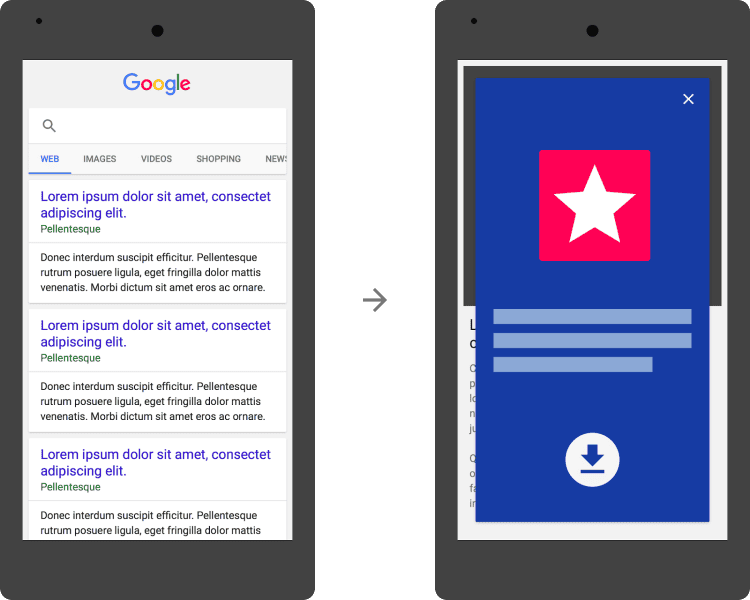Have you ever clicked on a relevant search result to be greeted with a giant advertisement prompting you to download an app, instead of providing the content you expected? Google has announced this will no longer be deemed mobile-friendly, and sites using app interstitial ads may lose out on search engine rankings.
This change will come into effect come on November 1st 2015. However, the existing mobile-friendly tester is already showing websites with such adverts as not mobile-friendly.
Why is this such big news, and why does being mobile-friendly matter for SEO?
If you missed it, Google began ranking mobile-friendly websites higher back in April 2015; meaning that websites unoptimised for mobile devices have been seeing a decrease in their mobile search engine rankings. For more information, read our blog post:
Google will rank Mobile-Friendly Websites Higher starting April 21st
So now, not only does having a mobile-friendly website help provide a top user experience and encourage conversions, it also helps you get to the top of the search engine results page.
If your website is utilising a giant advert prompting users to download your app, then Google no longer considers it mobile-friendly, even if your website is optimised for mobile devices.
In case you’re unclear on what this involves, the below image may help explain:

As you can see, the image on the right demonstrates how an app interstitial blocks the content a user wanted to read, which is a sure way to encourage users to hit the back button, and choose a competitor’s search listing.
So why have Google introduced this new measure of mobile-friendliness?
Google clearly state that it is simply not a good search experience for its users on mobile devices. Consider that when a user clicks a certain search result, expecting their relevant content to be displayed, they get a huge advert for an app they don’t need or want, it’s easy to see why this isn’t friendly for mobile devices. The content they want is being obscured by a giant advert, which could easily be promoted in a more subtle manner.
When someone is searching for specific content, it can be very frustrating and tiresome to see these ads, rather than the content that was promised from within the search results. Whilst the advertisements may be good for converting browsers into long-term app users, it also means the expected content takes more time and is more difficult to obtain.
This is a move from Google to promote a good experience for Google users specifically, whilst also influencing the development of web design and marketing in general. This move should hopefully provide a better experience to users browsing the web on mobile devices, ensuring it remains a great place to browse the web, without being subjected to big adverts and only using specific apps.
As for advice on how to promote your app on your website without losing rankings, Google suggested the following:
App install banners are supported by Safari (as Smart Banners) and Chrome (as Native App Install Banners). Banners provide a consistent user interface for promoting an app and provide the user with the ability to control their browsing experience. Webmasters can also use their own implementations of app install banners as long as they don’t block searchers from viewing the page’s content.
Instead of displaying such a large advertisement that clearly takes away from the user experience (if they don’t want to install an app), then Google suggests the app interstitial displayed below:

To clarify, these more subtle adverts that prompt users to install an app remain mobile-friendly. It’s only the huge adverts that cover the majority of the page that will be deemed non-mobile-friendly, and will suffer lower search rankings as a consequence.
For more information on how a mobile-friendly websites are dominating the top mobile search result positions, read our blog post below:
Mobile-Friendly Websites Conquer Top Google Search Result Positions, New SEO Study Shows
So if you want to remain mobile-friendly and maintain your search engine rankings, whilst also promoting your app, the Apple-supported Smart Banners and Chrome-supported App Install Banners are the answer to this problem.
If you’re looking to gain search engine rankings, and make the move to a mobile web design, get in touch with the team at Xanthos today.












